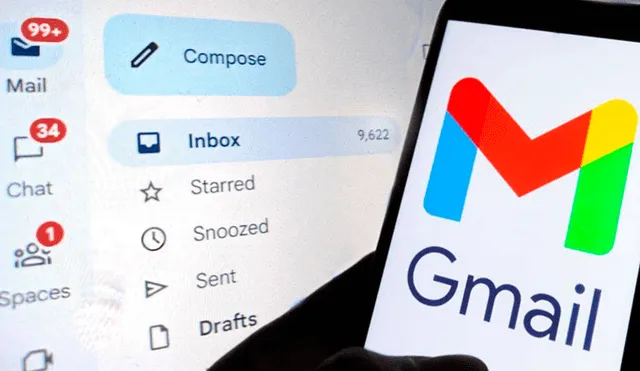Attention Gmail users! Google announces new update: Here's how to keep your account safe
Google has confirmed a new Gmail security update and is warning users to strengthen their account protection.

Google has issued a major update to Gmail, along with an urgent warning that could affect up to 3 billion users worldwide. While the update brings new security features, it also highlights the importance of taking proactive steps to secure your email account — especially in the face of increasingly sophisticated phishing attacks that mimic official Google communications.
The tech giant is urging users to upgrade their security settings by enabling passkeys and moving aways from SMS-based two-factors authentication, which is being phased out. Through rare, recent incidents involving fake emails that appear to come from Google have drawn attention.
Google confirmed a Gmail update for their users
Google has confirmed a new Gmail update. This is crucial information to protect your email account, if you don't follow the advice provided, you risk losing access to your account and its contents.
The company is increasingly frustrated by recent attacks targeting Gmail users, which have gained attention despite only a few individuals. Unfortunately, the more pressing warning is being overshadowed by these articles focusing on a fake email that appeared to come from Google
However, let's first clear the confusion: you're not about to receive a surge of fake emails from an address like no-reply@google.com. These attacks are rare and specific, which is why they make headlines.
How to safe your Gmail account from Google update
To better secure your account, Google recommends changing your settings to include a passkey and avoiding SMS-based two-factor authentication, as it is being phrased out. The time to act is now.
The real risk lies in sophisticated attacks where scammers impersonate Google and request your account credentials. Google will never ask for personal credentials or passwords via email, phone, or message. If you receive such communications asking for your credentials, they are scams.
While these attacks highlight vulnerabilities in Gmail, Google has patched the issue, just as it did after a similar incident in January. Google continues to improve defenses, but as attackers adapt, it's critical for Gmail users to take basic precautions.
Set up a passkey and switch to a more secure two-factor authentication method than SMS. Always be cautious of unsolicited support contacts, and if in doubt, contact the company directly using official channels.












